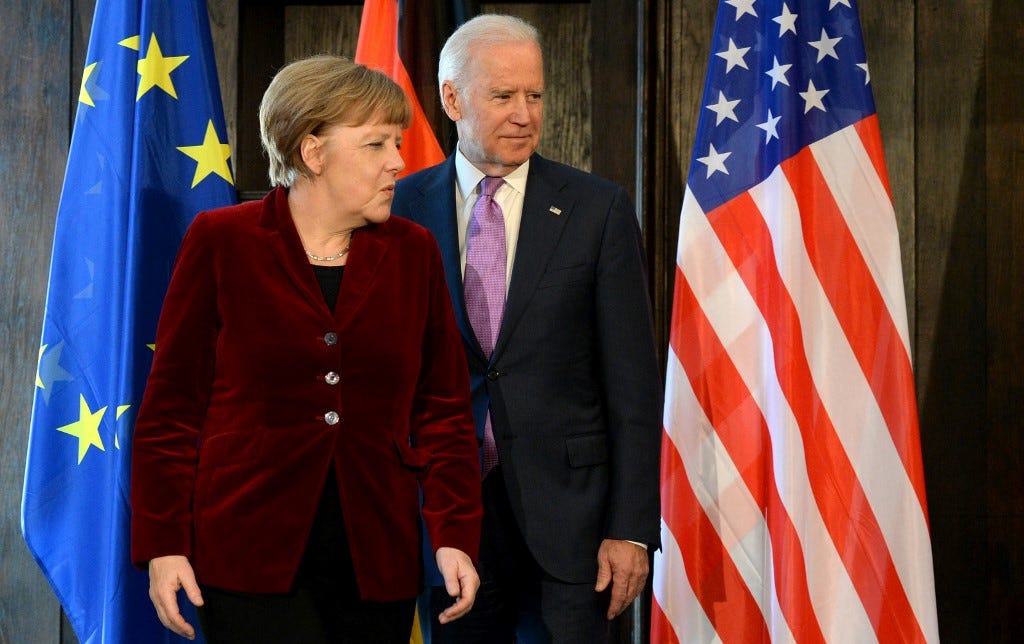Source: Biden could tell Munich security forum plans to return to Iran deal
Some Iran experts fear an announcement may not be enough to get Iran to suspend plans to reduce cooperation with IAEA next week
President Biden could potentially express his intention to return the United States to the Iran nuclear deal when he addresses the Munich Security Conference on Friday, a source who consults with the US administration told Diplomatic.
Biden is supposed to virtually address the global security conference on Friday (Feb. 19) at about 11:15 A.M. Washington D.C. time. He is also due to attend a virtual meeting of the G-7 world leaders hosted by British Prime Minister Boris Johnson on Friday, which will be focused on the global response to Covid-19.
German Chancellor Angela Merkel spoke with Iranian President Hassan Rouhani today, reiterating German interest in preserving the 2015 Iran nuclear deal, formally known as the Joint Comprehensive Plan of Action (JCPOA), and urging Iran to send positive signals to facilitate a diplomatic resolution.
“The Chancellor reiterated that the German government, together with the other JCPoA partners, has a high interest in preserving the nuclear agreement,” a spokesman for Merkel, Steffen Seibert, said in a translation of the statement on the call provided by the German embassy.
“She expressed concern that Iran continues to fail to meet its obligations under the nuclear agreement,” the statement continued. “She said that now was the time for positive signals that would build confidence and increase the chances of a diplomatic solution. Chancellor Merkel and President Rouhani also discussed regional issues and the challenges of containing the Corona pandemic.”
Iran on Monday said it had informed the UN atomic watchdog agency that it would cease voluntary implementation of the Additional Protocol on February 23, in a sign some Iran experts said reflected the Iranian perception that it is taking the Biden administration too long to make a move towards returning to the Iran nuclear deal and ease sanctions.
International Atomic Energy Agency (IAEA) director general Rafael Grossi will travel to Iran on Sunday to discuss what measures Iran intends to take, the Agency said today.
“Director General Rafael Mariano Grossi will visit Tehran on Saturday for discussions with senior Iranian officials in order to find a mutually agreeable solution for the IAEA to continue essential verification activities in the country,” the IAEA said in a statement today. Iran’s plan to cease implementation of the Additional Protocol “would have a serious impact on the IAEA’s verification and monitoring activities in the country.”
In addition to ceasing implementation of the Additional Protocol, which would cease snap inspections, Iran is also considering taking other measures, including changing the timing of when it notifies the Agency of any decision to make changes to its nuclear facilities, another Iran expert source who consults with the US administration said.
The expert source said the new US administration appears to be in a holding pattern on its Iran policy, and he fears that short of Biden issuing an executive order on his intention to return to the Iran nuclear deal and issuing some economic measure to demonstrate his intentions, it would not be enough to get Iran to suspend its plans for reducing its cooperation with the IAEA on Feb. 23.
“Any kind of declaratory policy is not going to be enough,” he said. Without some action associated with the words, the Iranian government will “not have enough maneuvering space to basically not implement” what is required by the Iranian parliamentary law. “They still need more than that.”
Iranian officials cited in Iranian media interviews in recent days have suggested that after February 23, IAEA activities in Iran will revert back to the level they were before reaching the JCPOA in 2015. But Iranian President Hassan Rouhani was cited this week indicating that Iran was still open to a diplomatic track, and that if and when the United States goes back to full JCPOA implementation, Iran would do the same.
“If Americans take one step, we will take one step,” Rouhani said in a weekly cabinet meeting today, according to the BBC Monitoring service. “If the Americans take all the steps at once, we will take all the steps at once. If they want to do it gradually, fine. If they want a group of actions, fine. If they want nothing, again fine."
Jeff Rathke, a former State Department official and expert on German-US relations, said the German government is eager to work with the Biden administration on trying to preserve the Iran nuclear deal, which former President Trump quit in 2018.
“The Germans are keen on getting the [Iran] deal back in place,” Rathke, now the President of the American Institute for Contemporary German Studies at Johns Hopkins University, said. “But the other thing on the German mind, which has more of a concrete deadline, is Afghanistan, because Germany provides the second largest number of international troops in Afghanistan, (after the U.S.), and is heavily dependent on the U.S. for enabling, logistics and other support.”
The National Security Council did not immediately respond to a query on whether Biden would address his intentions on the Iran nuclear deal when he speaks to the Munich forum on Friday.



